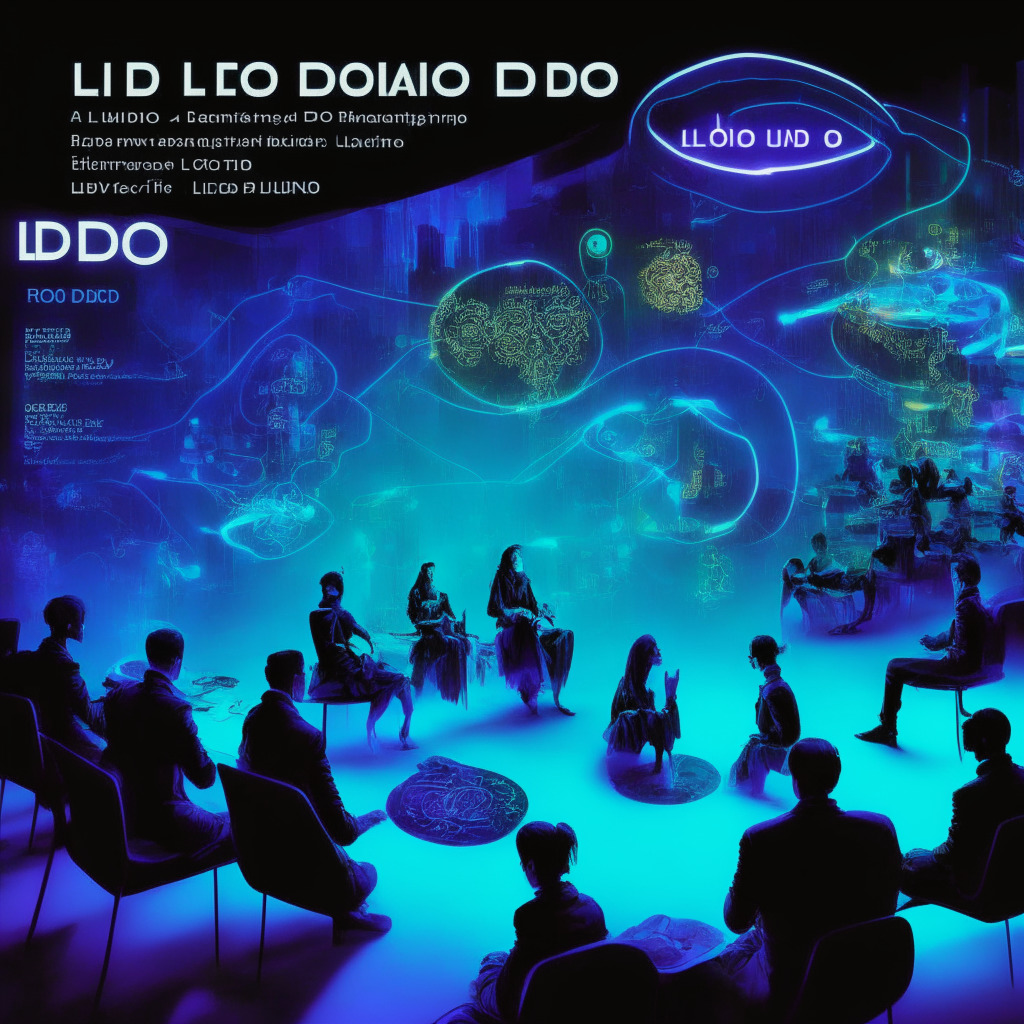The U.S. Bankruptcy Court approved Voyager Digital’s liquidation plan, enabling the return of approximately $1.33 billion in crypto to customers. This marks the third bankruptcy plan for Voyager, following Binance.US’s withdrawal from a previous agreement. Initial customer payments will be made in crypto or cash, with future litigations possibly impacting further distributions.
Month: May 2023
Recovering Misappropriated FTX Funds: Accountability vs Industry Reputation Debate
Alameda Research and West Realm Shires attempt to recover $6.9 million from Embed Financial shareholders after allegations of FTX’s Sam Bankman-Fried acquiring Embed using misappropriated funds. The case highlights the importance of transparency, accountability, and ethical practices in the blockchain and cryptocurrency markets.
AR and VR Revolution in Transportation: Overcoming Motion Challenges and Enhancing Experiences
Meta and BMW announced the successful integration of stable VR and mixed reality content for passengers in fast-moving vehicles, aiming to enhance experiences in smart vehicles. Overcoming headset sensor challenges, researchers combined BMW’s sensor array with Project Aria research glasses to anchor virtual objects in the car. This collaboration signifies a promising development in AR and VR technology for transportation, although commercial availability remains uncertain.
Crypto ETF Plans Halted: Regulatory Scrutiny vs Market Stability Debate
Grayscale and Bitwise recently halted their Ethereum futures ETF plans due to increased scrutiny from US regulators. SEC’s concerns have led to withdrawals and amendments of applications for related products. Proponents argue regulated crypto could boost adoption by institutional investors, while critics fear stifling innovation.
Bankrupt Voyager Digital’s Self-Liquidation: Customers’ Loss and Failed Acquisitions
Bankrupt crypto lender Voyager Digital gains court approval to self-liquidate assets and repay customers about 36% of their frozen funds, following failed acquisition deals by FTX and Binance.US. The liquidation plan isn’t ideal but presents the only viable path forward for the troubled company.
Australia’s Big 4 Bank Tackles Crypto Scams: The Implications and Challenges Ahead
Australia’s Westpac bank plans to launch a pilot trial in late May for crypto scam protection measures, aiming to combat fraudulent activities linked to digital currency market. This responds to the rising number of scams, with approximately 50% of customer-related losses involving investment scams and one-third of reported cases involving direct transfers to cryptocurrency exchanges.
Terra Labs Legal Tangle: Crypto’s Lessons on Regulations and Market Stability
The bail deal for Terra Labs co-founder Do Kwon is now in question, as Montenegro’s State Prosecutor’s Office files an appellation against it. Kwon faces extradition to South Korea and criminal charges in the US, emphasizing the importance of regulatory adherence and transparency for crypto enthusiasts.
Bitcoin Struggles at $27,500: Tether’s Impact, Korea’s Regulations, and Pakistan’s Ban
Bitcoin struggles to overcome the $27,500 resistance level amid a downward trendline, while Tether plans to purchase Bitcoin to diversify its reserve holdings backing USDT. Meanwhile, Korean politicians unite for crypto regulations, and Pakistan enforces a ban on cryptocurrency services due to FATF requirements.
Lido DAO Proposal: Boost LDO Value with Staking, Buybacks & Revenue Sharing – A Balanced Analysis
A proposal submitted by lidomaxi aims to increase Lido’s native governance token, LDO’s utility by introducing staking, buyback programs, an insurance fund for Lido DAO, and a revenue-sharing parameter. This development could potentially revamp LDO, but concerns regarding complexity and impact on other token holders remain.
Ether’s Massive OTC Trade: Analyzing Strategies, Implications, and Potential Returns
A single entity recently purchased over 57,000 contracts of ether’s June expiry call option at a $2,200 strike price, selling an equal number of September expiry call contracts. This trade, involving large transactions outside the open market, represents a short call calendar spread strategy designed to profit from significant price shifts away from the strike price. The investor likely expects ether prices or volatility to rise after the June expiry.
FTX Bankruptcy Case: Balancing Transparency, Costs, and Legal Requirements
The U.S. Trustee challenges a Delaware bankruptcy court’s decision, arguing that an independent examiner must be appointed in the FTX bankruptcy case. Ensuring transparency, this appointment may bring unbiased perspective despite an estimated $100 million examination cost.
FTX Lawsuit: The Price of Skipped Due Diligence and the $219 Million Crypto Acquisition Lesson
FTX lawyers sue former CEO Sam Bankman-Fried, co-founder Zixiao Wang, and ex-executive Nishad Singh over $220 million Embed acquisition, alleging lack of due diligence. FTX accuses insiders of perpetrating massive fraud using misappropriated customer funds for Embed’s purchase, and seeks to label transactions as “avoidable fraudulent transfers and obligations.”
Bitcoin Frogs Leap to NFT Fame: Impact on Bitcoin Fees and Tech Landscape Debated
The world of non-fungible tokens (NFTs) has been taken by storm with the launch of Bitcoin Frogs, a collection of 10,000 unique frog collectibles minted on the Bitcoin blockchain. Within 24 hours, trading volume reached over $2.2 million, outpacing established collections like Bored Apes. The Ordinals Protocol has enabled NFTs issued on Bitcoin to gain traction but has also led to skyrocketing fees.
Terra Co-founder’s Asset Withdrawal: Impact on Crypto Ecosystem and Investor Caution
Terra co-founder Do Kwon reportedly withdrew $2.15 million worth of digital assets before his bail was approved amid the Terra-LUNA crisis. This development raises questions about court proceedings and highlights the need for increased scrutiny and regulation in the cryptocurrency market.
Crypto Exchanges Face Banking Hurdles: Impact on Market & Need for Clear Regulations
Recently, Binance Australia suspended Australian Dollar bank transfers using PayID due to issues with its third-party payment service provider, while Crypto.com faces banking challenges affecting its liquidity. These incidents highlight the importance of establishing clear guidelines and a robust legal framework for cryptocurrency exchanges, ensuring a secure environment for digital asset transactions.
Pakistan’s Crypto Ban: Safeguarding Economy or Hindering Financial Freedom?
Pakistan’s Senate Standing Committee on Finance seeks to ban cryptocurrency use amid economic difficulties, with inflation hitting 36% in April 2023. The country’s financial policymakers view cryptocurrencies as high-risk, fearing potential financial terrorism and further strain on IMF relations. Critics argue that cryptocurrencies can act as a hedge against inflation in economically unstable nations.
UK Treasury’s Gambling-Style Crypto Regulation Faces Backlash: Striking a Balance for Growth
The Treasury Committee’s proposal to regulate unbacked cryptocurrencies like gambling has faced backlash from CryptoUK and Kraken UK. Critics argue that this approach overlooks sector nuances and hinders growth, while urging for a bespoke regulatory model for the UK’s cryptocurrency framework.
Blockchain’s Industry Revolution: Achievements, Challenges, and the Road Ahead
The recent Cointelegraph article explores blockchain’s potential to revolutionize various industries and discusses concerns regarding scalability, energy consumption, cybersecurity risks, and regulatory challenges. This insightful piece maintains a balanced viewpoint, encouraging informed decisions about blockchain’s rapidly evolving market.
Ledger’s Firmware Fiasco: Trust, Transparency, and the Push for Open-Source Crypto Wallets
Hardware wallets play a pivotal role in securing private keys and ensuring the safe storage of valuable digital assets. Recent concerns about Ledger’s controversial firmware update led competitor GridPlus to announce open-sourcing its firmware, promoting transparency and urging other manufacturers to follow suit. The debate highlights the importance of striking a balance between privacy, security, and trust in the cryptocurrency industry.
Filecoin’s Growth Amid SEC Security Label: Decentralized Storage vs Regulation Battle
The decentralized storage system Filecoin gained attention as its native cryptocurrency, FIL, experienced a 3% value increase, despite being labeled as a security by the SEC. Grayscale Investments withdrew their application for a Filecoin Trust, marking ongoing struggles between crypto innovation and regulation.
Unveiling Hinman Speech Documents: Ripple vs SEC Showdown and Crypto Regulation Impact
Defense lawyer James K. Filan expects the Hinman Speech documents – revealing SEC’s internal discussions on Ether (ETH) classification – to be released by June 6. The unsealing of these documents could affect the future of cryptocurrency regulations and impact the ongoing battle between the SEC and Ripple Labs.
South Korea’s Urgent Crypto Bill: Balancing Investor Protection and Innovation
South Korea’s lawmakers are expediting the nation’s first standalone crypto bill, the Virtual Asset User Protection Bill, aiming to improve investor safety amid recent digital asset-related controversies. The comprehensive legislation consolidates 19 different crypto-related bills, providing clear legal definitions, outlining penalties, and mandating increased oversight and insurance for digital asset firms.
Revolut Expands into Australia: Benefits and Challenges of Crypto-Friendly Fintech Services
Revolut introduces international payments-focused business accounts in Australia while working to secure a banking license in the region. Providing multi-currency accounts, real-time spending reports, and multiple users management, Revolut aims to create an all-in-one financial management platform.
Bank Collapses Threaten Crypto: Pros and Cons of Direct Central Bank Access for EMT Issuers
This article discusses the risks associated with bank failures and the crypto market, highlighting the dependency of stablecoin issuers on banking partners for fiat settlement. It suggests granting e-money institutions direct access to central bank accounts, like in the UK and Lithuania, to increase safety, foster payment innovation, and reduce banking risks.
Binance AUD Suspension: Unveiling Crypto Market Vulnerabilities and the Need for Adaptability
The recent Binance suspension of AUD services highlights vulnerabilities and the need for adaptability within the cryptocurrency market. This incident emphasizes potential risks when relying on external service providers and reminds users of the importance of thorough research before investing.
First eAUD Foreign Exchange Transaction: Future of CBDCs and Pros-Cons Debate
Australia successfully completed its first foreign exchange transaction using eAUD, marking a milestone in the country’s central bank digital currency (CBDC) development. The eAUD transaction showcased quicker settlement and potential benefits over traditional FX, remittance networks, and fiat currencies. The ongoing pilot explores various eAUD use-cases, driving the world closer to CBDC integration in financial systems.
Voyager Digital’s Bankruptcy Saga: A Cautionary Tale for Crypto Companies
Crypto lender Voyager Digital’s liquidation plan received approval, enabling the return of approximately $1.33 billion in crypto assets to its customers. The firm’s bankruptcy highlights the importance of understanding the complex economic and regulatory landscape in the turbulent and unpredictable cryptocurrency market.
South Korea’s Coin Gate Scandal: Crypto Declaration for Lawmakers? Pros and Cons Explored
South Korean lawmakers may soon need to declare their crypto holdings amid a national outcry over alleged “insider trading.” This development is linked to the controversy involving MP Kim Nam-kuk, accused of suspicious crypto trades worth around $4.5 million. The situation raises questions about transparency and regulation within the expanding crypto space and their integration into traditional financial and political systems.
Crypto Market Unfazed by Debt Ceiling, Stablecoins Diversify, and SEC’s Ripple Case Unveils Secrets
As the U.S. debt ceiling discussions continue, stablecoin issuers like Tether and Circle diversify their reserves amid dollar risks. Meanwhile, a federal judge ruled the SEC cannot seal documents related to ex-official William Hinman’s 2018 crypto speech, potentially revealing the reasoning behind ether not being considered a security.
Tether’s Bitcoin Investment Strategy and Emerging Crypto Projects: Navigating a Dynamic Market
Tether announces plans to allocate up to 15% of its reserves to invest in Bitcoin, citing its robustness and growing popularity. Meanwhile, innovative projects like AiDoge, Conflux, and ecoterra reflect the dynamic nature of the cryptocurrency market. Investors must stay vigilant and make informed decisions to capitalize on this growth.
SEC vs Grayscale: Is Filecoin a Security? Examining the Debate and Its Impact on Crypto
The SEC now considers Filecoin’s native token, FIL, to be a security, resulting in Grayscale Investments challenging the regulator’s viewpoint. Amid increasing regulatory crackdown on crypto products, this decision raises questions about the extent of oversight in the industry and the balance between innovation and protection.
dYdX’s Decentralization Journey: Balancing Governance & Efficiency with subDAOs
dYdX, a decentralized platform known for perpetual contracts, is exploring the establishment of additional subDAOs to further decentralize its ecosystem management. As dYdX upgrades to its fourth version on the Cosmos blockchain, it aims to create a more inclusive governance model by allowing the wider community to actively participate in decision-making, potentially setting a precedent for decentralized trading platforms.































